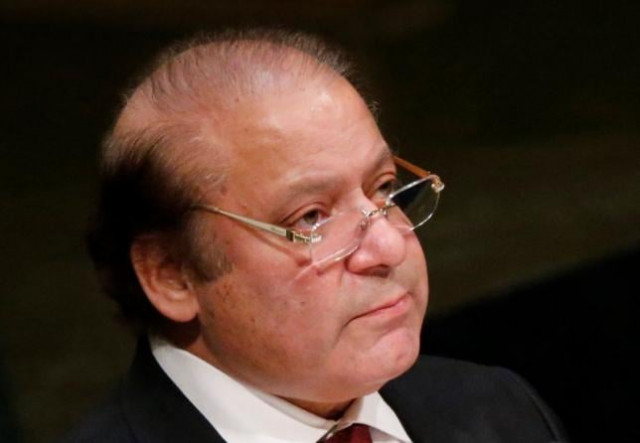SC restrains PM from taking solo financial actions
Declares cabinet’s approval mandatory to authorise expenditures, approve discretionary spending

According to the judgement, all discretionary spending without prior approval of the cabinet is contrary to law. PHOTO: REUTERS
The landmark judgment will have far reaching impact as it has curtailed discretionary powers used by successive regimes to run affairs of government.
The ruling came after apex court judges heard appeals filed by the importers of cellular phones and textile goods. Through constitutional petitions, the appellants had challenged certain government decisions on sales tax.
In a 79-page ruling, the three-judge bench headed by Justice Mian Saqib Nisar also set aside the Islamabad High Court’s judgment delivered some three years ago that declared notifications regarding modification of sales tax legal.
Justice Nisar, authoring the judgment, says that the federal government is a collective entity described as the cabinet constituting the prime minister and federal ministers.
“The prime minister is not constitutionally mandated to authorise expenditures on his own, and all discretionary spending without the prior approval of the cabinet is contrary to law.
“Neither a secretary, nor a minister and nor the prime minister is the federal government, and the exercise, or purported exercise, of a statutory power exercisable by the federal government by any of them, especially in relation to fiscal matters, is constitutionally invalid and a nullity in the eyes of the law.”

Similarly, the court holds that budgetary expenditure or discretionary governmental expenditure can only be authorised by the federal government, ie, the cabinet — and not the PM on his own.
It also decreed that the power to approve an ordinance can only be exercised after prior consideration by the cabinet and any ordinance issued without prior approval of the cabinet is not valid.
The judgment says no bill can be moved in parliament on behalf of the federal government without having been approved in advance by the cabinet.
“The cabinet has to be given a reasonable opportunity to consider, deliberate on and take decisions in relation to all proposed legislation, including the Finance Bill or (an) ordinance or (an) act. Actions by the prime minister on his own, in this regard, are not valid and are declared ultra vires.”
The judgment says any act, or statutory instrument (e.g. the Telecommunication (Re-Organisation) Act, 1996) purporting to describe any entity or organisation other than the cabinet as the federal government is ultra vires and a nullity.
The court has also declared Rule 16(2) that apparently enables the prime minister to bypass the cabinet as ultra vires of the constitution. Likewise, fiscal notifications enhancing the levy of tax issued by the secretary, revenue division, or the minister, are ultra vires, it adds.
It is; however, clarified in the judgment that this court has in the past consistently held that greater latitude is allowed in relation to beneficial notifications and that principle still applies.
The judgment also states that it is not the PM by himself who is responsible to parliament, but it is the body known as the cabinet, which is collectively responsible.
“To allow the PM to act on his own would enable him to escape from the responsibility to parliament for the consequences of his actions, which cannot conceivably be the intention of the Constitution.”
The court says that neither the constitutional provisions, nor the rules of business, confer power on a secretary or head of a division, to be treated as the federal government, adding the power has been conferred not on the prime minister, but on the federal government, ie, the cabinet.
Legal experts believe that the apex court through this verdict has actually elaborated the functioning of parliamentary system of government where cabinet should be taken on board in every important decision. Government would now have to get approval of the cabinet before promulgating ordinances or before issuing orders of financial nature like SROs.
Governments have been bypassing cabinet while promulgating ordinances at its will. After this judgment any such move would be considered illegal and challenged.
Usually Prime Ministers used their discretion while sending summaries to President to promulgate an ordinance, assuming an anticipatory approval of cabinet. Now all such matters would have to go through the federal cabinet. Incumbent government some times did not hold cabinet meetings for months but after this judgment it is likely that prime minister would be calling meeting of cabinet quite frequently.
It is likely that government will approach SC for a review of this judgment.
Published in The Express Tribune, August 19th, 2016.



















COMMENTS
Comments are moderated and generally will be posted if they are on-topic and not abusive.
For more information, please see our Comments FAQ